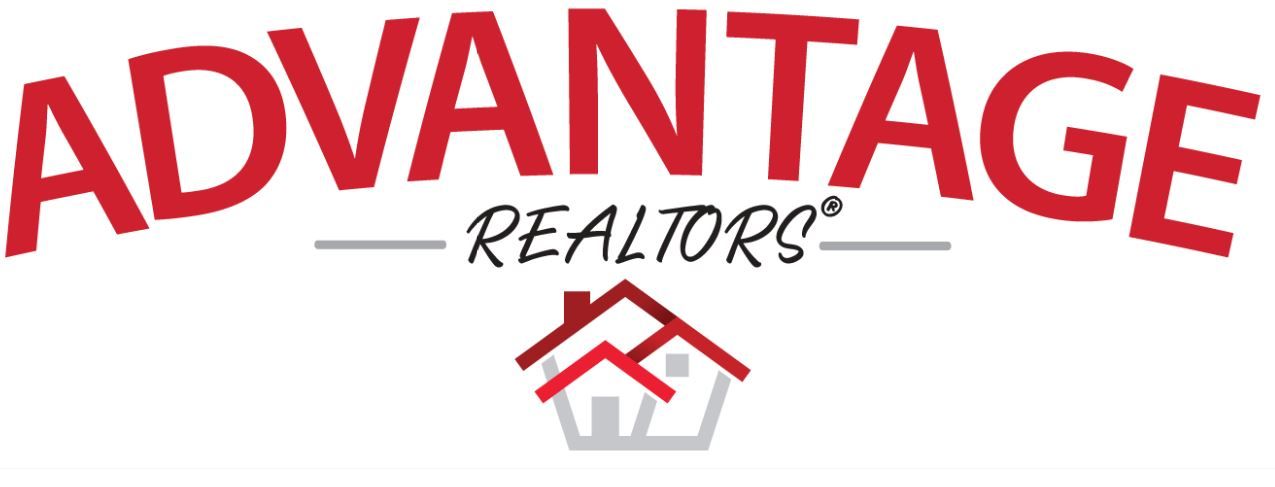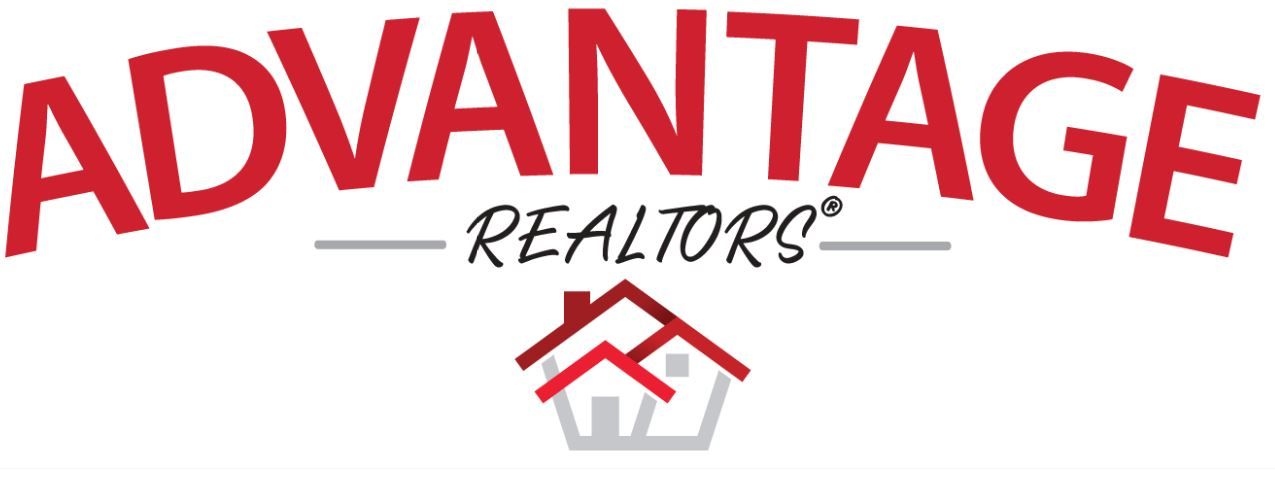Get in Touch
Submit the form or call me directly using the number above.
Get in Touch
We will get back to you as soon as possible.
Please try again later.

Hi, I'm CHELESE!
I'm here to help you throughout your entire home buying and selling process. Trying to do it all on your own can be burdensome. I'll find you homes within your price range, help you find buyers, assist you with paperwork, and more.

Professional Services
Buyers Representative
As your Buyer's Representative, we can make the process of house hunting much easier and more efficient than if you did it all yourself.
-
READ MORE
We can help you get financing, guide you to local neighborhoods, help you determine your budget, and prioritize a list of essential features that you need in your next home. We'll save you valuable time by finding the properties that best suit your requirements, and will show you only the most promising ones.
Once you've found a place that catches your eye, we'll look at comparable properties in the area to help determine a purchase offer. Then we'll negotiate on your behalf with the seller to make sure you get the most favorable terms.
It's our job to look after your best interests!
-
Steps to Buying a Home!
1. Determine Your Budget
Evaluate your finances: Check your income, savings, debt, and credit score. A good credit score (usually 620+ for conventional loans) can help you secure a mortgage at a lower interest rate.
Consider additional costs: Think about down payments, closing costs, property taxes, insurance, and maintenance.
2. Get Pre-Approved for a Mortgage
Shop around for mortgage lenders: Contact banks, credit unions, and mortgage brokers to compare rates and loan terms.
Get pre-approved: This involves submitting documents (e.g., income, debts, assets) to show a lender how much you're eligible to borrow. Pre-approval helps show sellers you’re a serious buyer.
3. Hire a Real Estate Agent
Find a good agent: A real estate agent can guide you through the process, from finding homes to negotiating offers. They will have local knowledge and experience.
Sign a buyer’s agreement: This formalizes the relationship and outlines the agent’s responsibilities.
4. Start House Hunting
Make a list of must-haves: What are your preferences in terms of size, location, features, etc.?
Attend open houses: Visit homes that fit your criteria, and get a feel for different neighborhoods.
Consider future resale value: Even if you're buying for the long term, it's good to think about how easy it will be to sell later on.
5. Make an Offer
Work with your agent: Once you find a house you like, your agent will help you determine a fair offer price based on the market.
Negotiations: The seller may accept your offer, reject it, or make a counteroffer. Negotiating is common.
6. Schedule a Home Inspection
Get the home inspected: After your offer is accepted, hire a professional inspector to evaluate the condition of the house. This step can help identify any major issues (e.g., foundation problems, roof issues, plumbing).
Negotiate repairs: If the inspection reveals any significant issues, you may ask the seller to make repairs or lower the price.
7. Secure Your Financing
Finalize your mortgage: After your offer is accepted, your lender will finalize your mortgage details. You’ll need to provide more documents (e.g., bank statements, tax returns).
Lock in your interest rate: You may be able to lock in the interest rate to protect against fluctuations.
8. Get a Home Appraisal
Appraisal: Your lender will likely require an appraisal to confirm that the home’s value matches the agreed-upon price. This protects the lender from over-lending.
Appraisal results: If the appraisal comes in lower than expected, the seller may need to lower the price or you may have to renegotiate.
9. Review Closing Disclosure
Finalizing closing details: A few days before closing, you'll receive a closing disclosure that outlines your mortgage terms, interest rates, monthly payments, and closing costs.
Double-check: Make sure the details match what you agreed upon.
10. Close the Deal
Closing day: On the closing day, you'll sign all necessary paperwork, including the mortgage agreement and deed of trust.
Pay closing costs: Be prepared to pay for closing costs, which typically range from 2-5% of the home’s price.
Get the keys: Once everything is signed, you’ll receive the keys to your new home!
11. Move In!
Celebrate: Congratulations! Now it's time to move into your new place.
Settle in: Change your address, set up utilities, and get started on making the house your home.
Throughout this process, make sure to communicate regularly with your agent, lender, and any other professionals involved to ensure things run smoothly.
-
Tips for buying a home
1. Get Pre-Approved for a Mortgage
Start with financing: Before you start house hunting, get pre-approved for a mortgage to understand your budget. This will give you an idea of how much you can borrow and make you a more attractive buyer to sellers.
Check your credit score: Your credit score can influence the loan amount and interest rate you're eligible for. Take steps to improve your score before applying for a mortgage if necessary.
Shop around for rates: Compare mortgage rates from different lenders to ensure you're getting the best deal.
2. Set a Realistic Budget
Determine your price range: Your pre-approval amount is just a guideline. Consider how much you're comfortable paying each month, including the mortgage, taxes, insurance, and maintenance costs.
Factor in additional costs: Don’t forget about the down payment, closing costs (usually 2-5% of the home price), and ongoing costs like home insurance and property taxes.
3. Choose the Right Location
Research neighborhoods: Think about the type of neighborhood you want to live in—commute times, school districts (if applicable), nearby amenities, and safety are all key considerations.
Think long-term: Consider factors like future growth, resale potential, and whether the area fits your lifestyle now and in the future.
4. Work with a Real Estate Agent
Hire an experienced agent: A knowledgeable real estate agent can guide you through the process, help you find homes that meet your needs, negotiate on your behalf, and ensure everything runs smoothly.
Communicate clearly: Be open with your agent about your priorities, such as must-have features, budget, and preferred neighborhoods, to help them find homes that match your needs.
5. Make a List of Must-Haves vs. Nice-to-Haves
Prioritize: Decide on non-negotiables (e.g., number of bedrooms, proximity to work) versus things that would be nice to have (e.g., a pool or large yard).
Be flexible: While it’s important to have a list of must-haves, being flexible can help you find a great deal in a competitive market.
6. Attend Open Houses and View Homes in Person
See the property in person: Pictures online may not show everything, so visit homes to get a true sense of the layout, condition, and feel of the property.
Ask questions: When attending open houses or showings, ask about the home’s history, any recent renovations, and the general condition of appliances, plumbing, and electrical systems.
7. Do a Thorough Home Inspection
Don’t skip the inspection: Once you’ve found a home you're interested in, hire a professional home inspector to evaluate the property for potential issues (e.g., foundation problems, plumbing, electrical systems, etc.).
Use the inspection to negotiate: If issues are found during the inspection, you may be able to negotiate with the seller for repairs or a price reduction.
8. Understand the Market
Know whether it’s a buyer’s or seller’s market: In a seller’s market (low inventory, high demand), you may face competition for properties and need to act fast. In a buyer’s market (high inventory, low demand), you might have more room to negotiate.
Monitor market trends: Stay updated on interest rates and property prices in your area to make an informed decision about timing.
9. Make an Offer
Start with a fair offer: Work with your agent to determine a reasonable offer based on the home’s condition, comparable sales in the area, and current market conditions.
Consider contingencies: Your offer may include contingencies (e.g., financing, inspection, or appraisal), which protect you if something goes wrong during the process.
10. Be Prepared for Negotiations
Expect counteroffers: The seller might counter your offer, and negotiations can take time. Stay patient, but know when to walk away if the terms aren’t favorable.
Don’t be afraid to ask for extras: In some cases, you may be able to negotiate things like closing costs or furniture being included.
11. Review the Closing Process Carefully
Understand closing costs: Closing costs can include loan fees, title insurance, and other administrative expenses. Make sure you understand these fees before signing.
Do a final walk-through: Before closing, walk through the house one last time to ensure everything is in order and the seller hasn’t removed fixtures or left behind unwanted items.
Review the closing disclosure: Make sure the terms of your mortgage and closing costs match your expectations.
12. Stay Within Your Budget
Avoid stretching financially: It can be tempting to buy a larger or more expensive home, but make sure your monthly payments fit within your budget. You’ll also want to have some savings left for emergencies and home maintenance.
13. Don’t Rush
Take your time: Buying a home is a big decision, and rushing through the process can lead to mistakes. Be patient and make sure you’re confident in your decision before committing.
14. Think About the Future
Consider resale value: Even if you’re buying your "forever" home, think about how easy it will be to sell in the future. Look for homes in desirable areas with good schools, access to transportation, and long-term value potential.
By following these tips, you’ll be well on your way to finding a home that fits your needs and budget, while also making a sound financial investment. Take it one step at a time, and you’ll be in a great position to make an informed, successful purchase!
Sellers Representative
Selling a house on your own can be a daunting task, but with Chelese Davis, a trusted realtor by your side, it becomes a breeze.
-
READ MORE
I always aim to provide an exceptional experience for my clients. With a keen eye for detail and deep understanding of the local market, I work tirelessly to best serve your needs. What truly sets me apart is my unwaviering commitment to building strong, trusting relationships. I take time to listen, understand your unique situation and guide you through every step of the process with genuine care.
-
Steps to selling your home
1. Decide If You're Ready to Sell
Assess your situation: Are you moving for work, upsizing, downsizing, or seeking a change in location? Make sure selling your home aligns with your goals.
Evaluate the market: Check if it's a seller's market (higher demand, lower inventory) or a buyer's market (lower demand, more inventory). This can affect your selling price and timing.
2. Prepare Your Home for Sale
Clean and declutter: Clean your home inside and out, and remove unnecessary items to make it look spacious and inviting.
Repairs and upgrades: Fix any obvious issues (e.g., leaks, chipped paint, or broken appliances). Minor upgrades (like painting rooms or landscaping) can make a big difference in the appeal.
Stage your home: Consider staging your home to make it more appealing to buyers. Staging can help them envision the space as their own.
3. Hire a Real Estate Agent
Find a qualified agent: Research and interview real estate agents who are experienced in your area. An agent can help with pricing, marketing, and negotiating.
Sign a listing agreement: This formalizes the agent’s role in representing you during the sale. You'll agree on the commission structure and other terms.
4. Set the Right Price
Price competitively: Your agent will perform a Comparative Market Analysis (CMA) to help set a competitive and realistic asking price based on recent sales of similar homes in your neighborhood.
Consider market conditions: Pricing your home too high can scare off buyers, while pricing it too low can result in a loss of potential profit.
5. Market Your Home
Professional photos: High-quality photos are essential for online listings, as many buyers will first see your home online.
Online listings: Your agent will list your home on real estate websites (e.g.MLS, Zillow, Realtor.com, Etc.) and may promote it through social media and email newsletters.
Open houses and showings: Your agent may host open houses or schedule private showings for potential buyers to view the property.
6. Review Offers and Negotiate
Receive offers: Once buyers begin showing interest, you’ll receive offers. Your agent will present them and help you assess which offer is best.
Negotiate: You may negotiate terms such as price, closing date, or repairs. Don’t be afraid to counter an offer if needed.
7. Accept an Offer and Enter Into a Contract
Choose the best offer: After negotiations, you’ll accept the offer that works for you. The buyer will provide an earnest deposit as a sign of good faith.
Sign a purchase agreement: This is a legally binding contract outlining the terms of the sale, including the price, contingencies (like a home inspection), and the closing date.
8. Prepare for the Home Inspection and Appraisal
Home inspection: The buyer will likely hire a professional to inspect the home for hidden issues. Be prepared for potential negotiations on repairs if any major issues are found.
Appraisal: The buyer’s lender will likely request an appraisal to ensure the home’s value supports the loan amount. If the appraisal comes in lower than the agreed-upon price, the buyer may ask for a price reduction or back out of the deal.
9. Resolve Any Contingencies
Buyer’s contingencies: These could include repairs or issues identified in the inspection or other conditions the buyer wants addressed (such as securing financing).
Negotiate solutions: You may need to make repairs, offer credits, or adjust the selling price to move forward.
10. Close the Sale
Review closing documents: A few days before closing, you’ll receive a Closing Disclosure outlining final sale costs, including any outstanding mortgage balances, fees, and commissions.
Final walk-through: The buyer will typically conduct a final walk-through to ensure the home’s condition hasn’t changed since the inspection.
Sign documents: On closing day, you’ll sign the necessary documents to transfer ownership to the buyer, including the deed of sale.
Transfer the keys: Once everything is signed and payment is processed, you’ll hand over the keys to the new owner.
11. Pay Off Your Mortgage and Settle Costs
Mortgage payoff: If you still owe on your mortgage, the remaining balance will be paid from the sale proceeds. Any equity you have in the home will be returned to you.
Pay closing costs: You may need to pay some closing costs, which can include agent commissions, repairs, taxes, or seller concessions.
12. Celebrate the Sale!
Move out: Pack up and leave the house in good condition for the new owners.
Celebrate your success: Congratulations on successfully selling your home!
Throughout this process, your real estate agent will be your main point of contact, guiding you through negotiations and ensuring everything goes smoothly. It’s also important to stay flexible and open to adjustments as market conditions and buyer needs can change.
-
Tips for selling your home
1. Set the Right Price
Don’t overprice: While it may be tempting to price your home higher, it can scare off potential buyers. Price it competitively based on recent sales of similar homes in your area.
Get a comparative market analysis (CMA): Your real estate agent can help with this to ensure you're pricing your home based on market trends.
Be flexible: Be ready to adjust the price if you’re not seeing much interest.
2. Enhance Curb Appeal
First impressions matter: The outside of your home is the first thing buyers see, so make it count. Mow the lawn, trim the bushes, clean the driveway, and add some potted plants or flowers to the entrance.
Paint the front door: A fresh coat of paint on your front door can make a welcoming statement.
3. Declutter and Clean
Declutter: Remove excess furniture, personal items, and anything that could make the space feel cramped. The goal is to help buyers visualize themselves in the home.
Deep clean: Clean carpets, wash windows, scrub the bathrooms, and make sure everything sparkles. A clean home feels fresher and more appealing.
4. Stage Your Home
Consider professional staging: If possible, hire a professional stager to make your home look its best. Staging can make rooms look larger, more inviting, and help buyers envision how the space can be used.
Use neutral colors: If staging yourself, try to use neutral tones for walls, furniture, and décor. Bold colors can be polarizing.
5. Make Necessary Repairs
Address minor repairs: Fix any broken doors, leaky faucets, cracked tiles, or peeling paint. These little things can make a big difference in how buyers perceive your home.
Consider major repairs if needed: If you have major issues (e.g., foundation problems, outdated HVAC), decide whether to fix them before listing or factor them into the price.
6. Get Professional Photos
High-quality photos matter: Buyers often search online first, so great photos are essential. Invest in a professional photographer who specializes in real estate to showcase your home in the best light.
Highlight key features: Make sure to capture important selling points like spacious rooms, natural light, and any recent renovations.
7. Market Your Home Effectively
List on major platforms: Ensure your home is listed on major real estate websites like Zillow, Realtor.com, and MLS, and consider additional exposure on social media.
Host an open house: An open house can draw in local buyers who might not have considered your home otherwise. Be sure your agent promotes it well.
Target the right buyers: Work with your agent to determine if your home is best suited for families, young professionals, or retirees, and target your marketing accordingly.
8. Be Flexible with Showings
Accommodate showings: Try to be as flexible as possible when it comes to scheduling showings. The more people that see your home, the higher your chances of receiving offers.
Keep it clean and ready: Make sure your home is always ready for a last-minute showing, especially if you’re in a fast-moving market.
9. Negotiate Wisely
Be open to negotiation: Most buyers will try to negotiate. Be prepared to respond to offers, whether you’re willing to make minor concessions or stand firm on your price.
Don’t take it personally: Buyers may request repairs or ask for a price reduction after the inspection. Stay objective and focused on reaching a deal.
10. Offer Incentives
Buyer incentives: If your home has been on the market for a while, consider offering an incentive, such as covering closing costs or offering a home warranty, to entice buyers.
Be open to contingencies: If you’re in a competitive market, consider offering to pay for a buyer’s closing costs or reduce your price slightly to secure the deal.
11. Consider Timing
Sell when demand is high: Spring and summer are often the best times to sell, as families want to move before the school year starts. However, the market can vary by location, so consult with your agent about local trends.
Avoid selling during holidays: Homes tend to sell slower during major holidays when people are focused on other things.
12. Work with a Good Real Estate Agent
Choose an experienced agent: A knowledgeable agent can guide you through the process, help you set the right price, negotiate offers, and market your home effectively.
Communication is key: Stay in close contact with your agent to ensure your home is being shown and marketed properly.
By following these tips, you’ll put your home in the best possible position to attract buyers and secure a favorable deal. Selling a home takes effort, but with the right preparation and real estate agent, it can be a smooth and rewarding process.

Areas of Specialty
Negotiations
Customer Service
Home Search
Comparative Market Analysis
Market Knowledge
Market Trends
Property Values
Neighborhood Developments
Areas Covered
Licensed in Kentucky and Tennessee

Why Work With Us
Our top-notch customer service and commitment to our clients is second-to-none.
Market Expertise
Market knowledge goes beyond simply knowing the neighborhoods. Ask us about the school district, available parking, or standard bedroom sizes in the area.
Client-Focused
Your time is valuable. That's why take the time upfront to understand your unique wants, needs and dislikes to ensure the rest of our time together is productive as possible.
Responsive
You have questions and I have answers. I'll make sure that you feel confident and empowered when it comes to make important real estate and purchasing decisions.
Referral Network
This industry is all about who you know. I can connect you with the top mortgage brokers, real estate attorneys, home inspectors, home stagers, and more...













